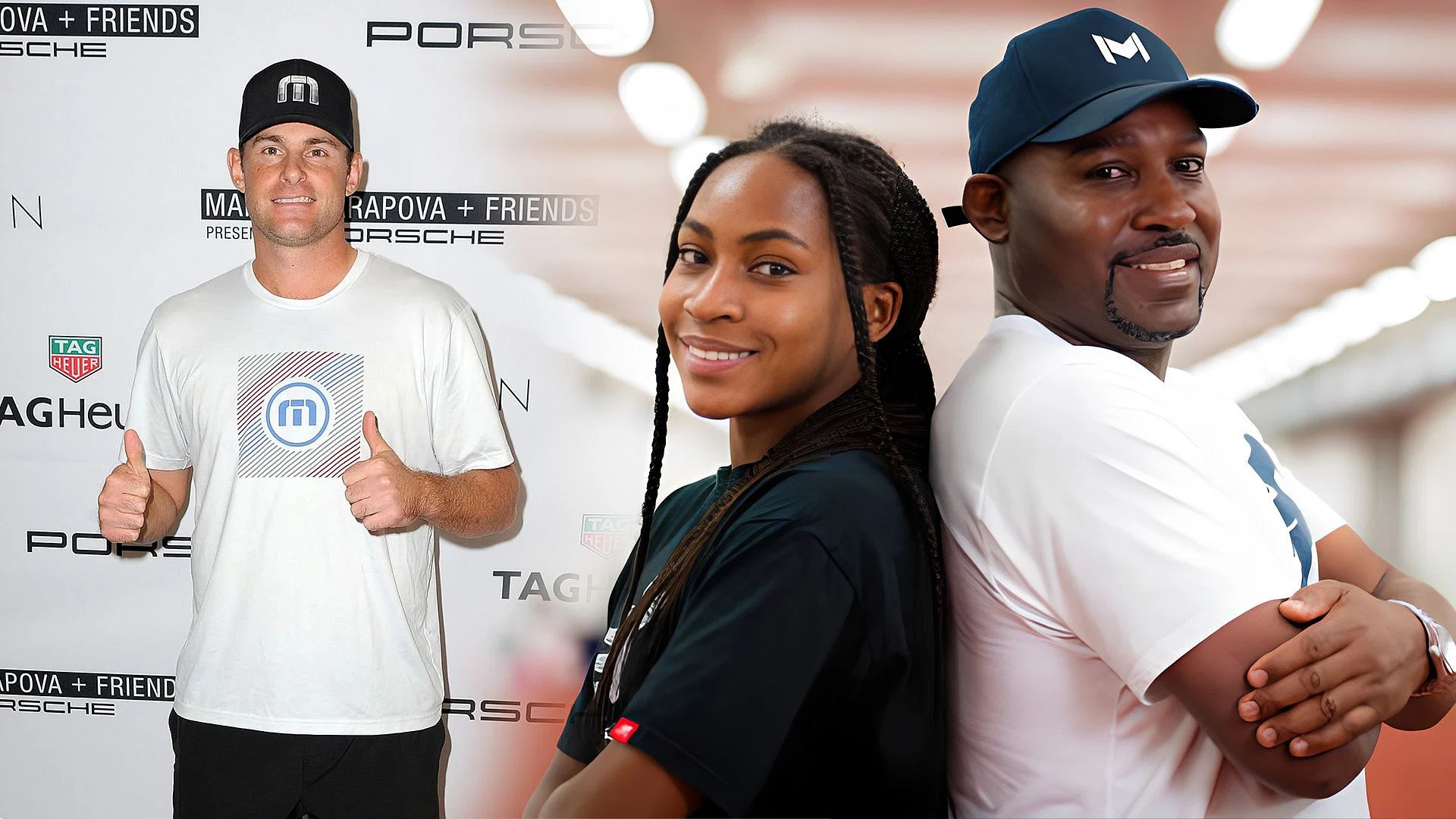
Andy Roddick, the former World No. 1 tennis star and Grand Slam champion, recently voiced his admiration for Coco Gauff’s father, Corey Gauff, for defying the often controversial narrative surrounding fathers who coach their daughters in professional tennis. On the inaugural episode of his new podcast, *Served with Andy Roddick*, Roddick took the opportunity to praise Corey for his exceptional approach, calling him a rare example of a supportive and respectful father-coach who prioritizes his daughter’s overall well-being.
Roddick’s insights stemmed from his recent experience working with Coco Gauff’s team, where he was invited by her coach, Brad Gilbert, to help fine-tune the World No. 3’s serve before the Australian Open. Gilbert, who previously worked with Roddick during his own career, reached out to his former student for additional expertise. Roddick readily agreed, spending several days training with the 19-year-old Gauff, her coach, and her father. This unique opportunity allowed Roddick a close look at the team dynamics and provided him with firsthand insight into Corey Gauff’s balanced and respectful approach to his daughter’s career.
During the podcast episode, Roddick brought up a longstanding issue in tennis—one that has often marred the careers of several talented players: the negative and sometimes destructive relationships between female athletes and their father-coaches. Historically, these relationships have been plagued by intense control and, at times, toxic behavior that affected not only the players’ tennis careers but also their emotional and mental well-being. Roddick openly referred to some father-coaches in tennis as “psychopaths,” noting that their behavior often transcended poor coaching to the point of irresponsibility as parents.
“There has been a negative history of fathers of women tennis players being psychopaths and being irresponsible to the total human,” Roddick stated. “It’s not just about the tennis but about the entire person.” This statement reflects a recurring theme in tennis, where fathers of some high-profile players have become infamous for putting undue pressure on their daughters or failing to respect the player’s autonomy and personal boundaries.
In contrast, Corey Gauff stood out to Roddick as a “rare” and “positive” exception, largely because of his ability to step back and allow his daughter’s professional coaches to guide her development. Roddick praised Corey for not needing to be the central figure or the primary source of instruction, which, he said, is unusual in the tennis world. “Corey Gauff was here also, and his ability to not be the center of attention, doesn’t need the information to come from him—that is rare, and it sounds like something that should be very obvious, but it’s not,” Roddick explained.
Historically, the stories of intense father-coaches in women’s tennis are numerous and often troubling. For example, some former players have come forward to share experiences of emotionally or physically abusive fathers, while others have described the difficulty of having their father as their coach, constantly under scrutiny and control. These stories have, over the years, created what Roddick called “cautionary tales” within the sport. “There are a lot of cautionary tales,” he said, “and I won’t name them out of respect for those who have suffered, but it has been rampant in our sport.”
Roddick’s appreciation for Corey Gauff’s approach highlights the critical importance of supportive and healthy parental involvement in an athlete’s journey. Coco Gauff has been in the public eye since her breakout performance at Wimbledon in 2019, where she stunned the tennis world by defeating Venus Williams as a teenager. Since then, she has continued to ascend in the ranks, solidifying herself as one of the brightest young talents in the sport. Her father, Corey, has played a pivotal role in her development but has been notably hands-off in terms of her technical coaching, entrusting those responsibilities to her professional coaches.
This healthy dynamic, Roddick observed, could be one of the factors contributing to Coco’s maturity and mental resilience on the court. Roddick underscored that Corey’s willingness to let Brad Gilbert, and now himself for the time being, take the lead on coaching matters showcases a level of humility and understanding that is, unfortunately, all too rare among tennis parents. “It sounds like something that should be very obvious,” Roddick said, “but it’s not. In the history of our sport, it is not.”
Coco Gauff’s father’s approach provides a model that may well inspire future parents in the world of tennis. In a highly competitive and often high-pressure sport, supportive yet respectful parental involvement can foster a healthier athlete, both physically and mentally. For Coco, the presence of a father who respects her independence as a player while providing unwavering support has likely been instrumental in her rapid rise to the top.
Roddick’s comments resonate beyond the realm of tennis. The idea of parents fostering their children’s talents without overwhelming them is universal, and Corey Gauff’s example serves as a reminder that young athletes benefit from being given both the guidance and the space they need to grow. As Coco heads into the Australian Open and future tournaments, it will be interesting to see how her team dynamics continue to support her growth and success on the world stage.
Roddick’s praise for Corey Gauff sheds light on the delicate balance between being a parent and a mentor, especially in a sport where parent-child coaching dynamics have not always been positive. By stepping back and allowing his daughter to shine on her own terms, Corey Gauff exemplifies the supportive, respectful role that more parents in competitive sports could aspire to. With the backing of her family and professional team, Coco Gauff stands well-equipped to handle the pressures of a career that is only beginning to flourish.
Leave a Reply